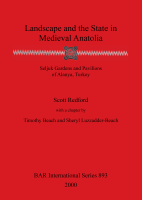Description
BOOK DESCRIPTIONThis study, focusing on the Rum Seljuk dynasty in thirteenth-century Anatolia, combines local history, geography, art history, and archaeology to examine instances of an only partially understood garden tradition in one corner of the medieval Mediterranean. Gardens, and their architecture, have been neglected, not only because of the paucity of remains, the architecture they inspired was not monumental and relied strongly on a sense of place, and a sensitivity to the landscape. This book attempts to recover a measure of that sense and that landscape, as well as the activities that endowed them with meaning for those that enjoyed them.











